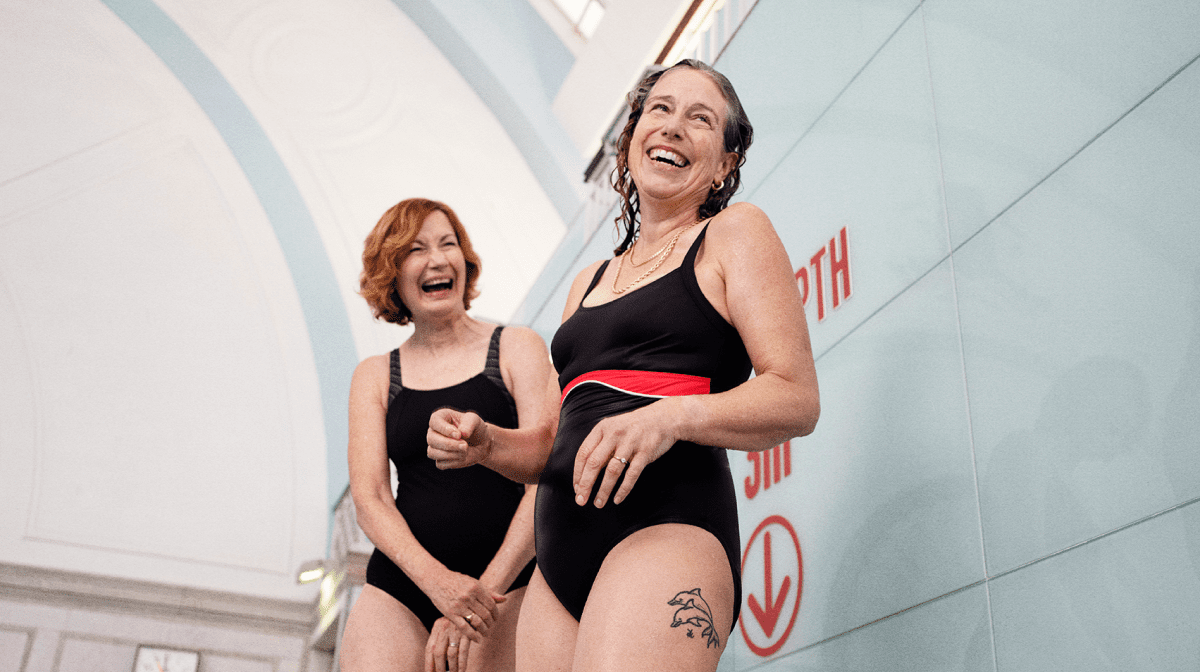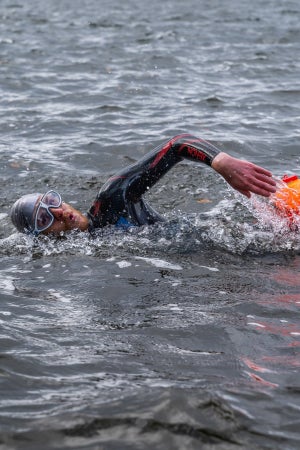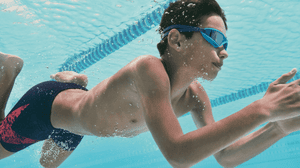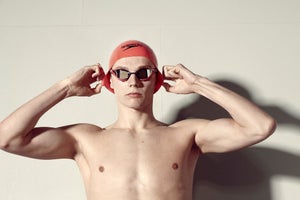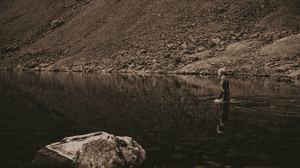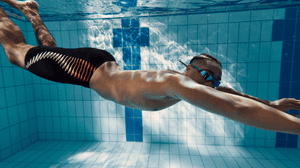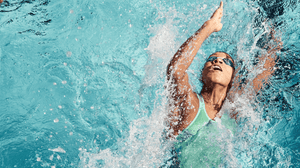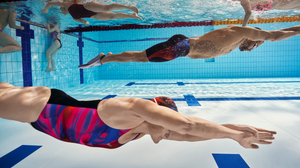
I don’t remember learning to swim—because I always swam. I do remember taking swim lessons when I was eight or so at an over-chlorinated pool in upstate New York—and realising there was a way this might take the joy out of it.
To swim in open water- be it pond, stream, river, tarn, lake, sea or ocean – is to meld with the contours of the landscape—to reach into the source of life, to immerse my insignificant self in something greater. I have lived in many countries—at this point, I am challenged to say where I am ‘from’. But the water knows—and its boundlessness settles my wandering spirit.
In my younger years, Lake George in the Adirondacks was my balm, my companion through those hard adolescent struggles. Whenever I can, I slip into those crystalline waters, threading my way along the shoreline like tracing the silhouette of an old lover. 32 miles of drinkable water—the contrast of deep blue and green mountains will make your heart ache.
A few years ago, I had returned to care for my mother and while there, I ran a literary study for old friends and neighbours on the lake. We discussed Kate Chopin’s stunning story The Awakening for an intense four hours as the sun slipped behind the mountains. The story brings to the surface the struggle for a woman trapped in the enclosed gender roles of the Deep South in the 1800s—she blooms into life in a brief affair but this ends badly; she learns to swim and the freedom she discovers in her body and mind give her a glimmer of possibility before the social world condemns her. In the final scene, she swims out from her family’s holiday cottage at Grand Isle in the Gulf of Mexico—out, out stroke after stroke…
Kate Chopin, "The Awakening"The voice of the sea is seductive, never ceasing, whispering, clamoring, murmuring, inviting the soul to wander in abysses of solitude.
When the study ended, having held the thoughts and struggles of the readers in my mind, having entered into the depths of the story and encountered the pain there, I went down to the dock, dropped books and clothes and swam along the moon’s trail into the far-depths of the ebony lake. And then I returned—having re-gathered my pieces and rested my own grief beside that of the Edna Pontellier, the shards made fluid in the water.
Each new country offers a different relationship with wild waters—learning to negotiate these is another understanding of cultural difference—and the shared spaces of overlap. When I lived in France—I discovered the French love of open waters—and the many local ponds and lakes that feed a village. In the Parc Morvan for example, there is a necklace of lakes that was used to transport the timber that built Paris: now this has become an open-water swimmers’ dream.

Moving to London 12 years ago opened me to winter swimming. As I was struggling to find my feet in this new world, the incredible community at the Kenwood Ladies Pond gave me a rooting. I never thought I could swim through the winter (I am culturally Californian) –but with a supportive group of walking swimmers, I eased my way through October, into November—and suddenly, there I was! Relishing the crispness, the utter cleansing, the life-sustaining dips in December where you come so close to teeth-chattering idiocy that you need to REALLY be honest with yourself—to know what you can manage, when you have gone too far: this clarity spreads to the other corners of your life.
In recent years, the Kenwood Ladies Pond community has been highlighted in the growing wild swimming movement—it was my privilege to be mentioned in a New Yorker article—becoming known as celebrating the positive effects of cold-water swimming on one’s sex life (although I was only passing on what I had been told by a wise old swimmer)….Ironically, as the ponds on Hampstead Heath have become more popular, the City of London who manages the ponds has made them increasingly inaccessible through elevated charges. The pond community is currently united in the fight to make these urban gems available to all. This is another glorious aspect to swimming communities: they frequently are the hub of grass-roots activism for environmental protection and increased access.
Now that I can’t swim, the love of swimming feels scorched into me. I have swimming dreams—my shoulders ache from disuse, my body craves expanse and embrace. I won’t do the bin dip—as much as I appreciate those who do—for me, the magic is in the release and limitless movement of open water. There I am utterly free- unmoored and vulnerable to the majestic encompassing of the enveloping waters.

